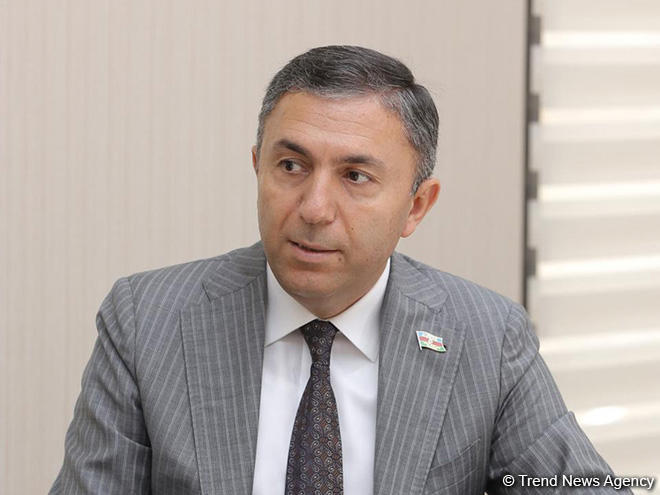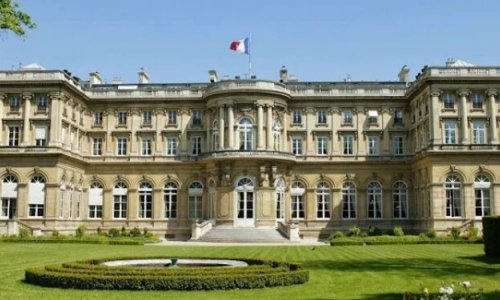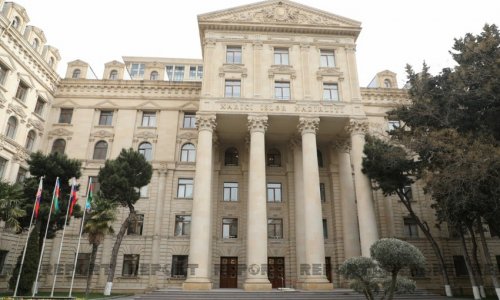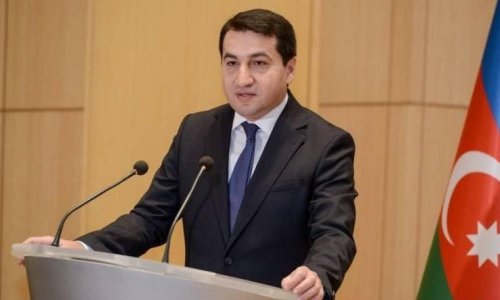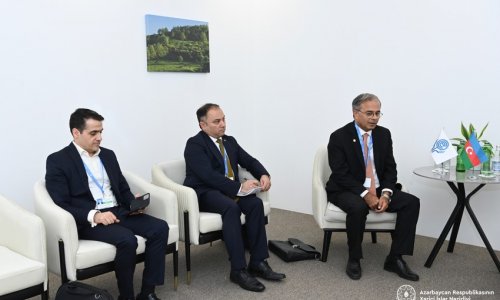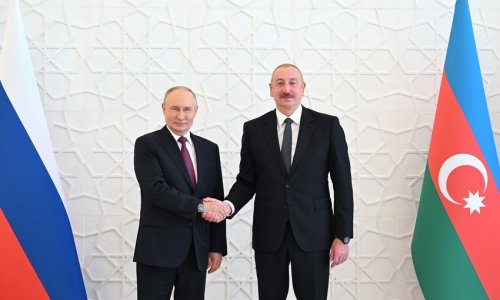The 28th Annual Session of the OSCE Parliamentary Assembly in Luxembourg was devoted to the theme "Advancing Sustainable Development to Promote Security: The Role of Parliaments”, Azerbaijani MP, deputy chairman of the OSCE PA delegation Tahir Mirkishili told Trend.
As it was expected, the main discussions were held in the Committee on Political Affairs and Security, as one of the draft resolutions prepared by the committee reflected a new approach to the settlement of regional conflicts, he said.
He noted that the OSCE PA documents have always emphasized that unresolved conflicts are the main obstacle to sustainable development and ensuring human rights.
"One of these conflicts is the Armenia-Azerbaijan Nagorno-Karabakh conflict,” he said. ‘Contrary to the efforts of Armenian diplomacy, negotiations with various countries and numerous speeches and meetings of the Armenian delegation to the OSCE PA, as a result of the efforts of the Azerbaijani delegation, in particular OSCE PA Vice President Azay Guliyev, the new approach to conflicts’ settlement was reflected in the draft resolution.”
"First, unlike the traditional approach of the OSCE and other international organizations, for the first time, the document reflected the importance of applying a unified approach to conflicts in Azerbaijan, Ukraine, Georgia and Moldova,” the Azerbaijani MP said. "Before that, various countries and organizations urged to treat the Nagorno-Karabakh conflict differently, and apply a special approach to its settlement. The Armenian delegation even proposed to remove Azerbaijan from this list, but to keep Ukraine, Georgia and Moldova. The proposal to remove Azerbaijan from this list, as a result of the voting (41 against and 6 for), was rejected.”
However, the document contains more weighty arguments in favor of Azerbaijan, he added.
"Secondly, the document records calls for purposeful negotiations to resolve conflicts in the territories of Azerbaijan, Ukraine, Georgia and Moldova, on the basis of the principles of sovereignty, territorial integrity and inviolability, internationally recognized state borders,” Mirkishili said.
"Thirdly, the document unequivocally noted the inadmissibility of changing the agreed format of negotiations, which is the failure of Armenia’s attempts to include the separatist regime in the negotiations as a third party,” he noted.
"In the fourth, main point, the territory of the conflict is indicated as part of Azerbaijan, which once again confirms that the occupied Nagorno-Karabakh and the adjacent regions are the territory of Azerbaijan,” he said.
"Also, it is worth noting the importance of the political influence of the official statement by the OSCE PA, after the four resolutions adopted by the UN Security Council in 1993, on the settlement of the conflict in Azerbaijan on the basis of the principles of sovereignty, territorial integrity and inviolability of internationally recognized state borders,” the Azerbaijani MP noted.
Mirkishili stressed that the resolution is of great political importance, due to the preparation and adoption by the Committee on Political Affairs and Security of the OSCE PA.
"I would like to remind that, in accordance with the OSCE PA Rules of Procedure, this document is submitted to the OSCE Ministerial Council and is recommended for use during the negotiations,” he said. "From this point of view, the adopted draft resolution is a new diplomatic achievement in the settlement of the Nagorno-Karabakh conflict within the interests of Azerbaijan. Intensive discussion of the occupied Nagorno-Karabakh and adjacent regions also contributed to better perception of the Azerbaijani realities by the members of the delegations of the participating countries.”
The conflict between the two South Caucasus countries began in 1988 when Armenia made territorial claims against Azerbaijan. As a result of the ensuing war, in 1992 Armenian armed forces occupied 20 percent of Azerbaijan, including the Nagorno-Karabakh region and seven surrounding districts.
The 1994 ceasefire agreement was followed by peace negotiations. Armenia has not yet implemented four UN Security Council resolutions on withdrawal of its armed forces from Nagorno-Karabakh and the surrounding districts.
www.anews.az

